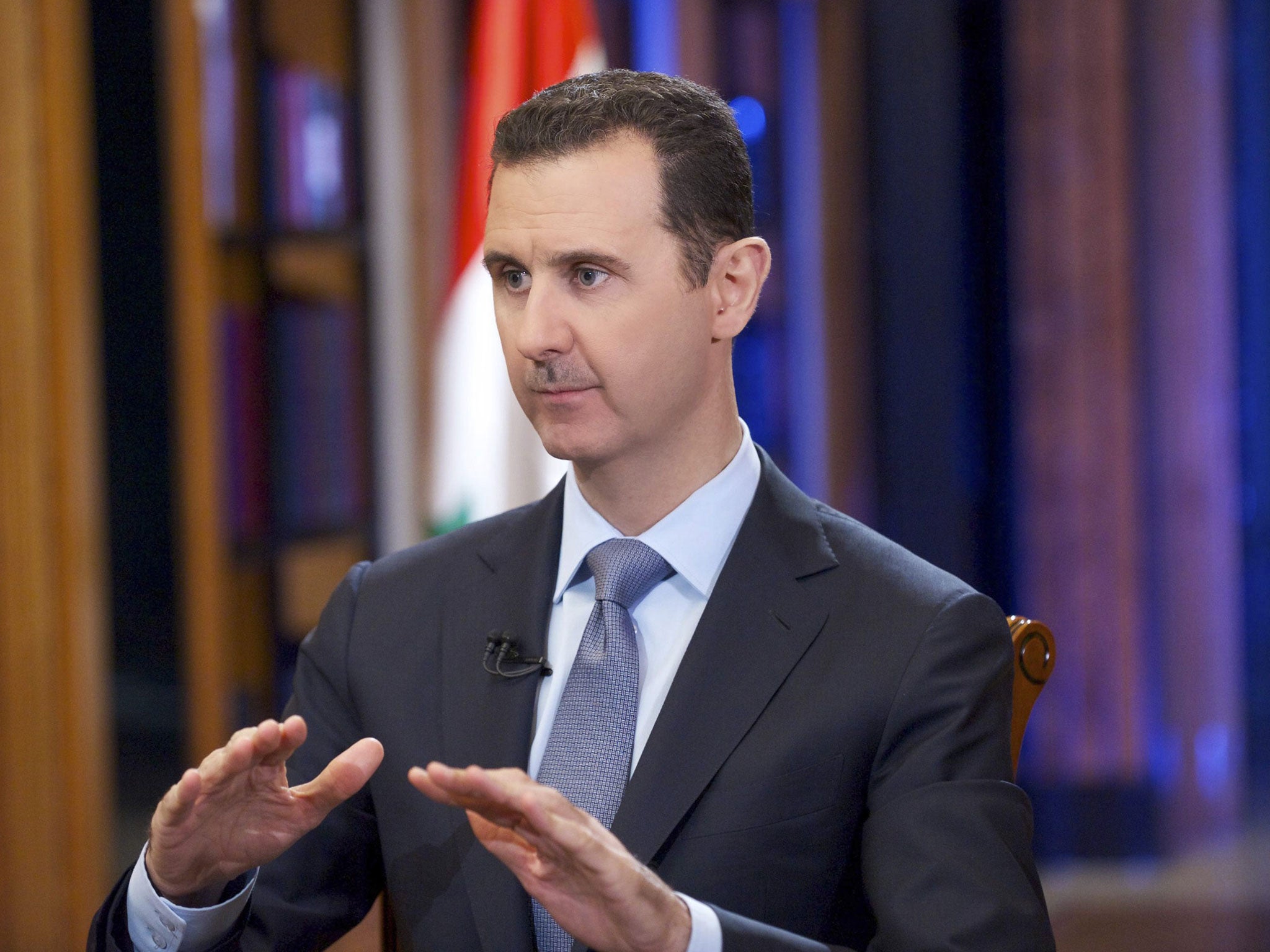
Your support helps us to tell the story
From reproductive rights to climate change to Big Tech, The Independent is on the ground when the story is developing. Whether it's investigating the financials of Elon Musk's pro-Trump PAC or producing our latest documentary, 'The A Word', which shines a light on the American women fighting for reproductive rights, we know how important it is to parse out the facts from the messaging.
At such a critical moment in US history, we need reporters on the ground. Your donation allows us to keep sending journalists to speak to both sides of the story.
The Independent is trusted by Americans across the entire political spectrum. And unlike many other quality news outlets, we choose not to lock Americans out of our reporting and analysis with paywalls. We believe quality journalism should be available to everyone, paid for by those who can afford it.
Your support makes all the difference.A mortar round landed inside the Russian Embassy compound in Damascus on Sunday, state media said, as Moscow said it was willing to send military observers to secure Syrian efforts to surrender its chemical weapons to international control.
Russia is a leading backer of Syria's President Bashar Assad and rebels fighting to topple his regime have previously targeted the diplomatic mission in Damascus with rockets and mortars.
In Moscow, the Russian Foreign Ministry confirmed the attack, saying rebels fired mortars that landed on the grounds of their embassy. Three workers were injured in the attack, the ministry said, adding that the injuries were not life-threatening. It gave no further details.
The Russian Embassy is located in Damascus' upscale Mazraa district, which also houses several Syrian security institutions, a soccer stadium and nightclubs.
In another mortar attack outside the capital, two people were injured when shells slammed into a residential building in the suburb of Jaramana, SANA said.
The attacks come as diplomatic wrangling continues over how to collect Syria's arsenal of chemical and biological agents to prevent any repeat of the 21 August attack outside Damascus that, according to the US, contained chemical agents and killed more than 1,400 people, including 400 children.
Activist groups estimate the death toll of the attack that brought Washington to the brink of a military strike against Syria to be significantly lower. Assad's government accuses rebels of using the chemical weapons.
Last week, a UN report confirmed the use of sarin in the August attack outside Damascus. Russia blamed the rebels, while the US and its European and Arab allies said Assad's forces were responsible.
On Sunday, Russian Foreign Minister Sergey Lavrov said Moscow was ready to send military observers to Syria to ensure security for efforts to eliminate Syria's chemical weapons.
But the Russian official said his country is not considering sending a full military contingent.
Subscribe to Independent Premium to bookmark this article
Want to bookmark your favourite articles and stories to read or reference later? Start your Independent Premium subscription today.
Join our commenting forum
Join thought-provoking conversations, follow other Independent readers and see their replies
Comments